Travel clinics ensure safe and healthy travel experiences by providing essential medical services, vaccinations, and advice tailored to specific destinations and traveler needs.
Whether embarking on a tropical adventure, exploring remote regions, or planning a business trip abroad, visiting a travel clinic can help you prepare for potential health risks and stay informed about necessary precautions.
In Massachusetts, travelers have access to various travel clinics staffed by knowledgeable healthcare professionals specializing in travel medicine.
From pre-travel consultations to post-trip evaluations, these clinics offer personalized care to help you stay healthy and enjoy your travels.
Join us as we navigate the landscape of travel clinics in Massachusetts, offering insights, tips, and resources to enhance your travel health preparedness.
Understanding the Importance of Travel Clinics
Travel clinics play a crucial role in ensuring the health and safety of travelers, particularly those heading to regions with specific health risks. Here’s why they are essential:
Preventive Measures
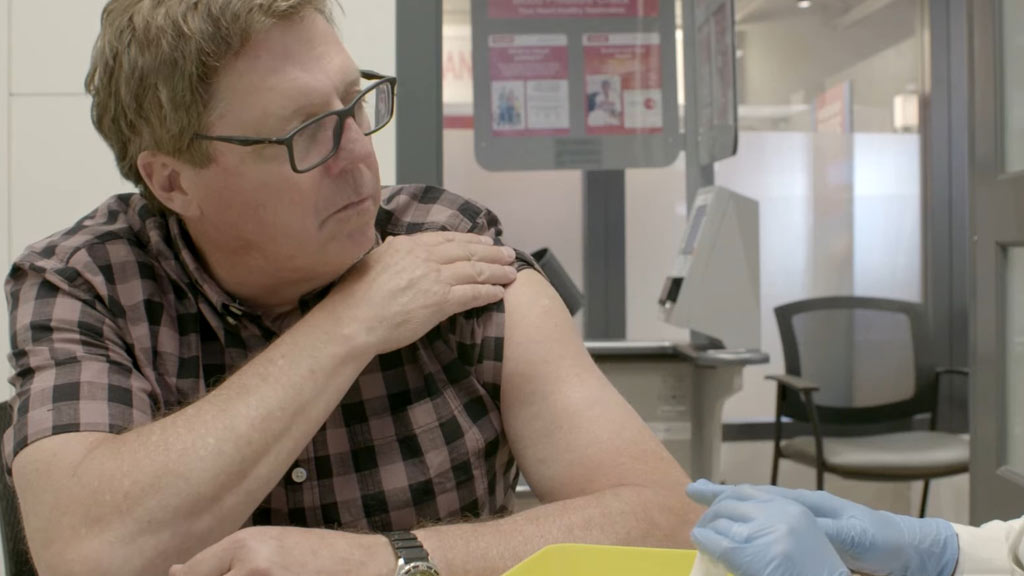
Travel clinics provide preventive measures such as vaccinations, medications, and advice tailored to the specific destination.
They help travelers understand and mitigate potential health risks associated with their destination, such as infectious diseases, altitude sickness, or food and waterborne illnesses.
Customized Health Advice
Travel clinics offer personalized health advice based on factors like destination, travel duration, planned activities, and individual health status.
This ensures travelers know potential health risks and take appropriate safety precautions.
Education and Awareness
Travel clinics educate travelers about health risks associated with specific destinations and measures they can take to stay healthy during their trip.
This includes information on safe food and water consumption, insect bite prevention, sun protection, and other health-related topics.
Vaccinations

Travel clinics administer vaccinations to protect against diseases prevalent in certain regions but not in the traveler’s home country.
These vaccinations can prevent serious illnesses such as yellow fever, typhoid, hepatitis, and others, reducing the risk of contracting diseases abroad.
Emergency Preparedness
Travel clinics help travelers prepare for medical emergencies abroad by providing information on local healthcare facilities, medical insurance coverage, and emergency contact numbers.
This ensures travelers know what to do in case of illness or injury while away from home.
Specialized Knowledge
Travel clinic staff are trained in travel medicine and have specialized knowledge about health risks in different parts of the world. They stay updated on emerging health threats and can provide accurate and timely information to travelers.
Peace of Mind
By visiting a travel clinic before their trip, travelers can have peace of mind knowing they have taken necessary precautions to protect their health. This allows them to enjoy their trip without worrying about potential health risks.
Overall, travel clinics play a vital role in promoting safe and healthy travel experiences by providing travelers with preventive care, education, and support before they embark on their journeys.
How to Find Travel Clinic Massachusetts
To find a travel clinic in Massachusetts, you can follow these steps:
Use Online Search Engines

Start by using search engines like Google, Bing, or Yahoo. You can enter keywords such as “travel clinic Massachusetts” or “travel medicine clinic near me” to find relevant results.
Check Healthcare Provider Directories
Many healthcare provider directories, such as Zocdoc, Healthgrades, or the American Society of Travel Advisors (ASTA), allow you to search for travel clinics by location. You can input your location as Massachusetts to find clinics in your area.
Use Government Resources
Government websites such as the Massachusetts Department of Public Health or the Centers for Disease Control and Prevention (CDC) may have directories or lists of travel clinics in the state.
Check with Travel Agencies or Organizations
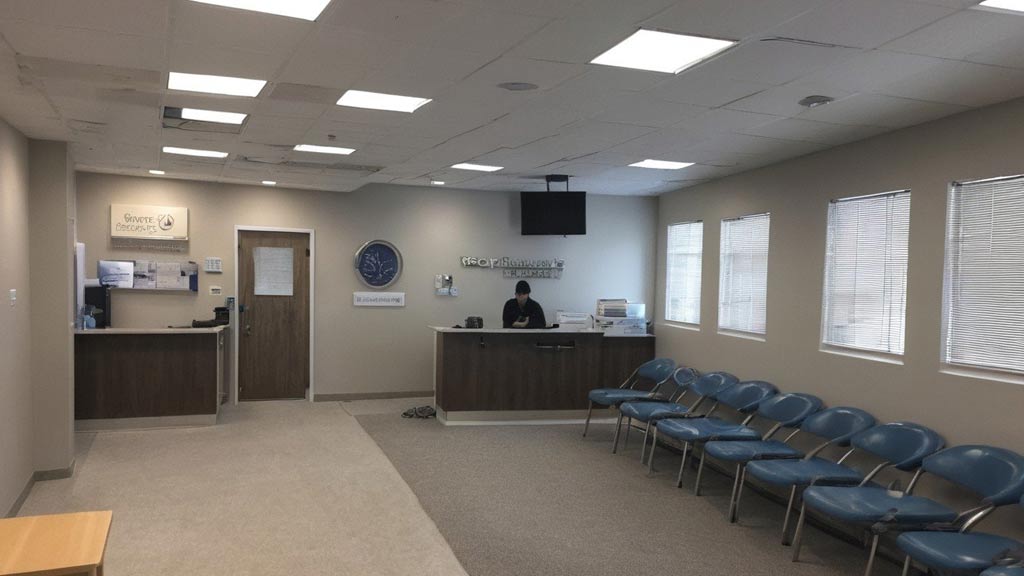
Travel agencies or organizations specializing in travel health may partner with Massachusetts travel clinics. They can provide recommendations or direct you to a suitable clinic.
Contact Local Hospitals or Medical Centers
Hospitals and medical centers often have travel medicine departments or clinics that provide services to travelers. You can contact these facilities directly and inquire about their travel medicine services.
Consult with a Primary Care Physician
Your primary care physician may be able to provide information about travel clinics in Massachusetts or refer you to a specialist if needed. They can also offer advice on travel health and recommend necessary vaccinations or medications.
Read Reviews and Testimonials
Once you have a list of potential travel clinics, you can read reviews and testimonials from previous patients to assess the quality of care and services.
By following these steps, you should be able to find a travel clinic in Massachusetts that meets your needs and provides the necessary services for your upcoming trip.
Services Offered at Massachusetts Travel Clinics
Travel clinics in Massachusetts typically offer a range of services tailored to the needs of travelers. These services may include:
Travel Health Consultations
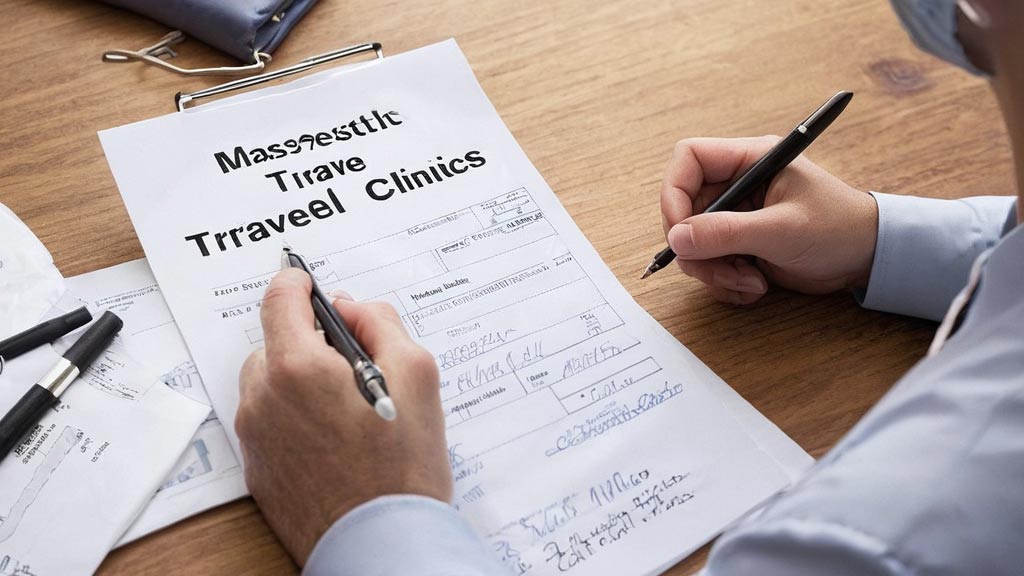
Travel clinics provide personalized consultations with healthcare professionals who specialize in travel medicine.
During these consultations, travelers receive information about health risks specific to their destination, preventive measures, and recommendations for vaccinations or medications.
Travel Health Education
Travel clinics provide education and advice on various travel health topics, including food and water safety, insect bite prevention, sun protection, altitude sickness prevention, and injury prevention during outdoor activities.
Pre-Travel Health Assessments
Before traveling, individuals may undergo pre-travel health assessments at travel clinics to evaluate their overall health status and identify any pre-existing conditions that may affect their travel plans.
Vaccinations
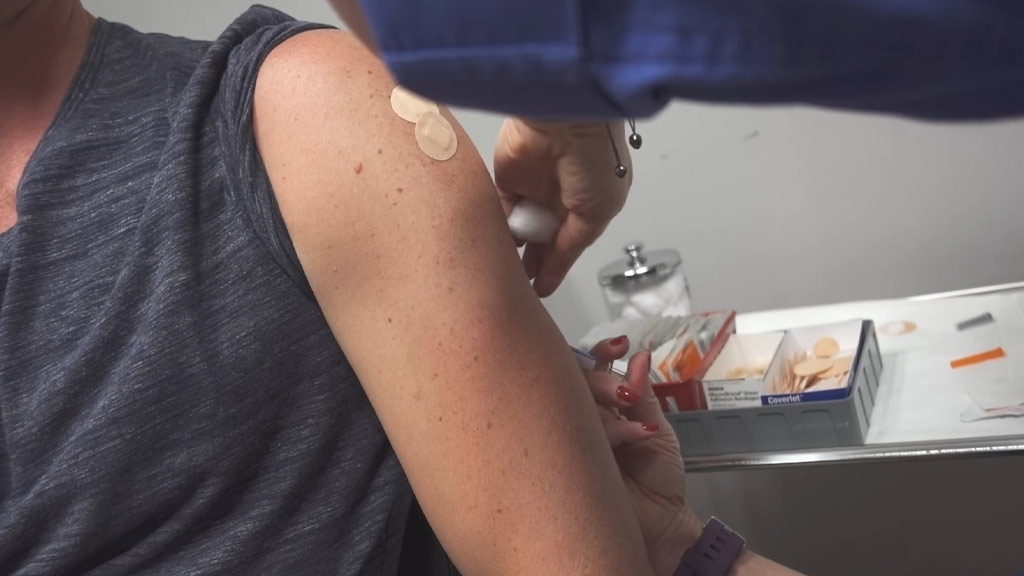
Travel clinics administer vaccinations to protect against diseases prevalent in certain regions.
Common vaccines provided at travel clinics include yellow fever, typhoid, hepatitis A and B, meningitis, rabies, and Japanese encephalitis.
Medication Prescriptions
Travel clinics may prescribe medications to prevent or treat travel-related illnesses such as malaria, traveler’s diarrhea, altitude sickness, or motion sickness. They also guide how to use these medications effectively.
Routine Immunizations
In addition to travel-specific vaccines, travel clinics may offer routine immunizations such as influenza, measles, mumps, rubella, tetanus, diphtheria, and pertussis (Tdap), depending on the traveler’s vaccination history and needs.
Post-Travel Health Evaluations
Travel clinics may offer post-travel health evaluations for returning from trips abroad.
During these evaluations, healthcare providers assess for any health issues or symptoms that may have developed during the trip and provide appropriate medical care and advice.
International Certificate of Vaccination
Travel clinics can issue International Certificates of Vaccination or Prophylaxis (ICVP), also known as yellow cards, for certain vaccinations required for entry into certain countries under International Health Regulations.
Travel Health Products
Some travel clinics may offer travel health products such as insect repellents, water purification tablets, first-aid kits, and other supplies to help travelers stay healthy and safe.
These services offered at travel clinics in Massachusetts aim to promote safe and healthy travel experiences by providing travelers with the necessary information and preventive measures to protect against travel-related health risks.
Cost Considerations and Insurance Coverage
When considering services at Massachusetts travel clinics, it’s essential to consider cost considerations and insurance coverage. Here are some key points to consider:
Consultation Fees
Travel clinics may charge consultation fees for appointments with healthcare providers to discuss travel health concerns, receive vaccinations, and obtain prescriptions for travel-related medications.
These fees can vary depending on the clinic and the complexity of the consultation.
Vaccine Costs
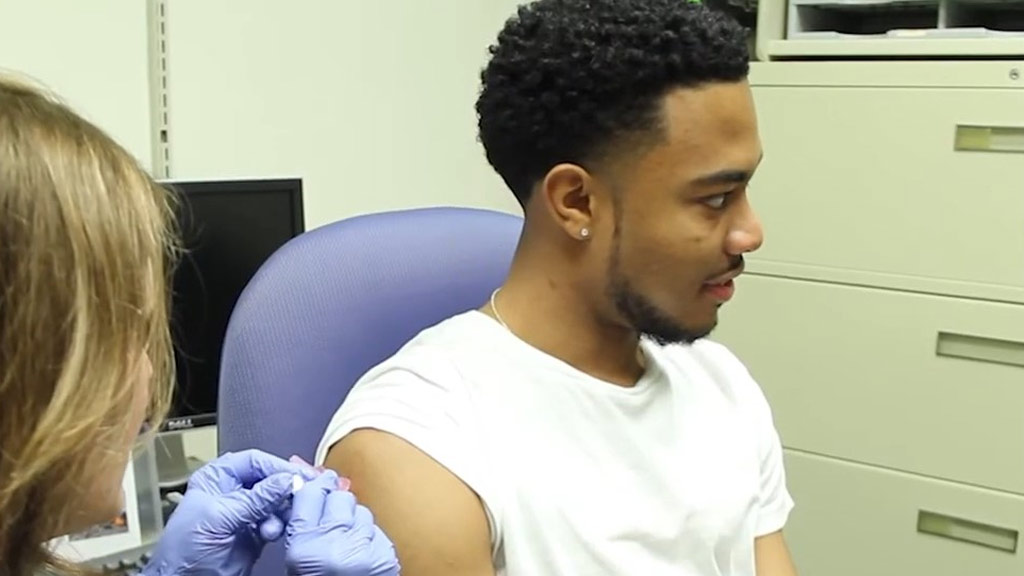
Vaccines administered at travel clinics may have associated costs. Some vaccines may be covered by health insurance, while others may need to be paid out of pocket.
Additionally, certain vaccines may be more expensive due to availability, demand, and manufacturer pricing.
Insurance Coverage
Travel health services, including consultations, vaccinations, and medications, may be covered by health insurance plans.
However, coverage can vary widely depending on the insurance provider, plan type, and individual policy terms. Some insurance plans may fully cover travel-related services, while others may require copayments, deductibles, or out-of-pocket expenses.
Out-of-Network Providers
It’s essential to check with your health insurance provider whether the travel clinic is in-network or out-of-network.
Visiting an out-of-network provider may incur higher out-of-pocket costs or limited insurance coverage. Some insurance plans may also require prior authorization for particular services or medications.
Medication Costs
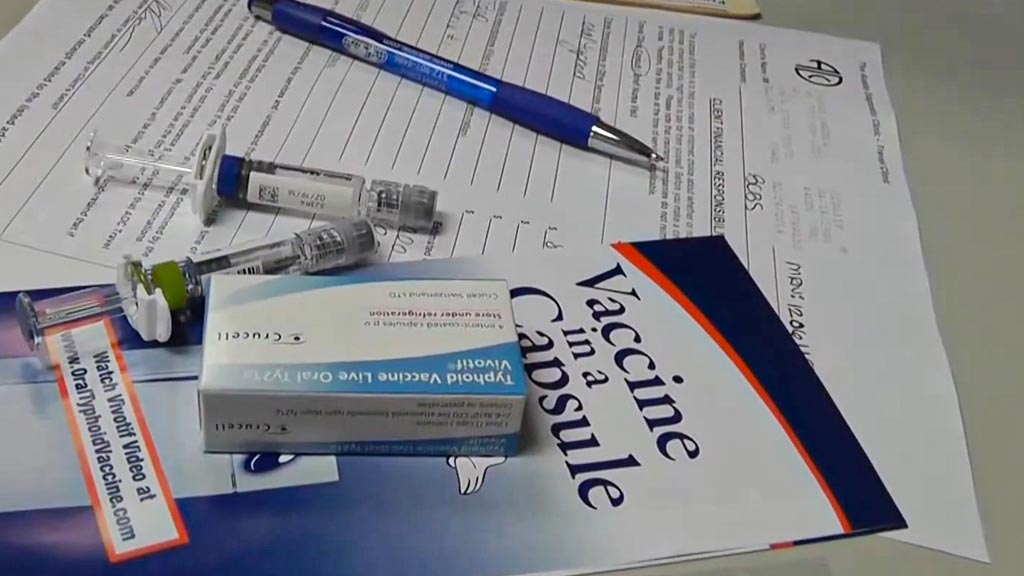
Travel clinics may prescribe medications to prevent or treat travel-related illnesses, such as malaria prevention or traveler’s diarrhea antibiotics.
The cost of these medications can vary depending on factors such as the type of medication, dosage, and duration of treatment. Inquiring about medication costs and whether they are covered by insurance is essential.
International Travel Insurance
For travelers planning trips abroad, it’s advisable to consider purchasing international travel insurance.
Travel insurance policies can cover medical expenses, emergency medical evacuation, trip cancellation, and other unforeseen events during travel.
However, coverage and policy terms can vary, so reviewing the policy details carefully is essential.
Government-Sponsored Programs
Some government-sponsored programs, such as the Vaccines for Children (VFC) program in the United States, provide free or low-cost vaccines for eligible individuals, including children, adolescents, and confident adults.
Depending on their age, health status, and other eligibility criteria, travelers may qualify for certain vaccines under these programs.
Before visiting a travel clinic in Massachusetts, it’s recommended to contact the clinic or check their website to inquire about services offered, associated costs, insurance acceptance, and any specific requirements or documentation needed for appointments.
Additionally, reviewing your health insurance coverage and considering purchasing international travel insurance for comprehensive coverage during your trip is advisable.
Tips for a Healthy and Safe Travel Experience
Here are some tips for maintaining a healthy and safe travel experience:
Research Your Destination
Before you travel, research your destination thoroughly. Understand any health risks, such as infectious diseases, food and water safety concerns, environmental hazards, and required vaccinations or medications.
Visit a Travel Clinic
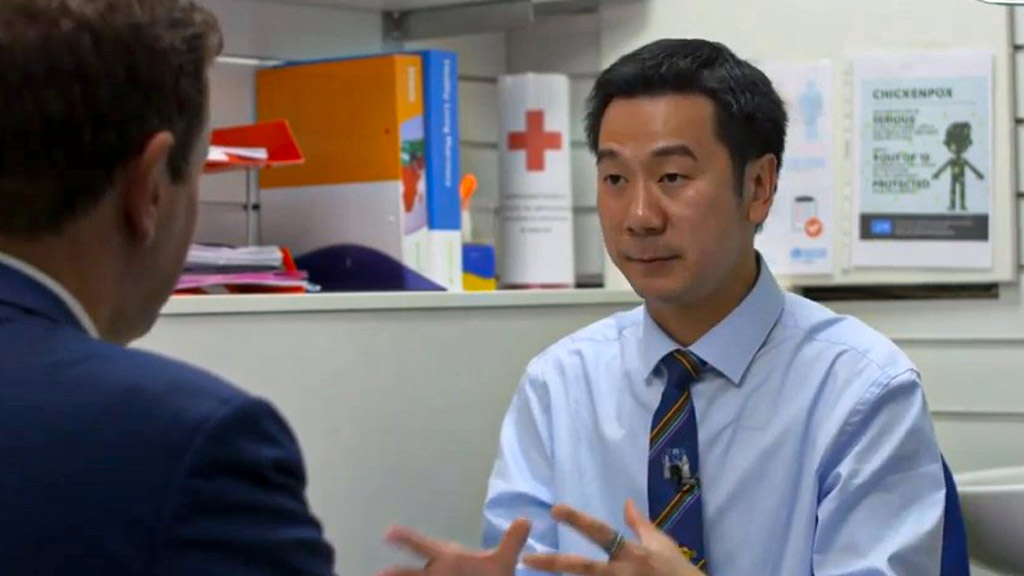
Schedule a visit to a travel clinic well in advance of your trip. A healthcare professional can provide personalized advice, administer necessary vaccinations, and prescribe medications to protect against travel-related illnesses.
Stay Up-to-Date on Vaccinations
Ensure you are up-to-date on routine vaccinations and receive any additional vaccines recommended for your destination. Some vaccines may require multiple doses or take time to become effective, so plan.
Practice Food and Water Safety
Be cautious about what you eat and drink while traveling. Drink bottled water or use water purification methods if tap water is unsafe. Avoid consuming raw or undercooked foods, and opt for freshly prepared meals from reputable sources.
Protect Against Insect Bites
Insect-borne diseases such as malaria, dengue fever, and Zika are prevalent in certain regions. Use insect repellent containing DEET, wear long sleeves and pants, and sleep under insecticide-treated bed nets to prevent mosquito bites.
Practice Sun Safety
Protect your skin from the sun’s harmful UV rays by wearing sunscreen with a high SPF, seeking shade during peak sun hours, and wearing protective clothing, sunglasses, and a wide-brimmed hat.
Practice Good Hygiene
Wash your hands frequently with soap and water, especially before eating or handling food. Carry hand sanitizer with you for situations where handwashing facilities are not available.
Be Prepared for Altitude
Traveling to high-altitude destinations, such as mountainous regions or high plateaus, acclimatize gradually to reduce the risk of altitude sickness.
Stay hydrated, avoid alcohol and strenuous activity upon arrival, and consider medications such as acetazolamide if recommended by a healthcare professional.
Exercise Caution with Adventure Activities
If engaging in adventure activities such as hiking, skiing, or water sports, ensure you are adequately trained and equipped. Follow safety guidelines, use appropriate protective gear, and only participate with reputable operators.
Purchase Travel Insurance
Consider purchasing travel insurance to cover medical emergencies, trip cancellations, lost luggage, and other unforeseen events.
Review the policy details carefully to understand what is covered and any exclusions.
Stay Informed and Remain Flexible
Stay informed about local health advisories, safety concerns, and travel restrictions, especially during political unrest, natural disasters, or disease outbreaks.
Remain flexible with your travel plans and be prepared to adjust them as needed for your safety and well-being.
By following these tips, you can help ensure a healthy and safe travel experience, allowing you to enjoy your trip to the fullest while minimizing potential health risks and hazards.
FAQs
What services do travel clinics in Massachusetts offer?
Massachusetts travel clinics offer various services, including travel health consultations, vaccinations for destination-specific diseases, prescriptions for travel medications, pre-travel health assessments, and post-travel health evaluations.
Do I need to make an appointment at a travel clinic in Massachusetts?
Yes, making an appointment at a travel clinic in Massachusetts is advisable.
This ensures that you receive personalized attention from a healthcare professional trained in travel medicine and allows for adequate time to discuss your travel health needs.
How far in advance should I visit a travel clinic before my trip?
Visiting a travel clinic in Massachusetts 4-6 weeks before your trip is recommended.
This allows sufficient time for vaccinations to take effect and any necessary medications to be prescribed. However, even last-minute appointments can provide valuable health advice and services.
Wrapping Up
Travel clinics in Massachusetts serve as invaluable resources for travelers seeking to protect their health and well-being while exploring the world.
By offering personalized consultations, vaccinations, medications, and expert advice, these clinics empower individuals to embark on their journeys confidently.
Whether preparing for an adventure in the mountains or a cultural immersion in a distant land, visiting a travel clinic ensures that travelers have the knowledge and tools to stay healthy and safe.
By prioritizing preventive care and education, travel clinics play a vital role in promoting enjoyable and worry-free travel experiences.
Jaclyn Lowe